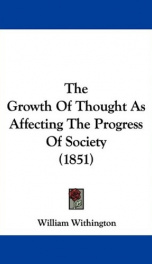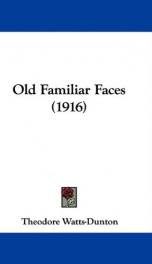Veblen Thorstein

Thorstein Bunde Veblen, born Tosten Bunde Veblen (July 30, 1857 – August 3, 1929) was a Norwegian-American sociologist and economist and a primary mentor, along with John R. Commons, of the institutional economics movement. He was an impassioned critic of the performance of the American economy, and is most famous for his book The Theory of the Leisure Class (1899). Veblen was born in Cato, Wisconsin, of Norwegian immigrant parents. Although Norwegian was his first language, he learned English from both neighbors and school, which he began at the age of 5.[2] His family was highly successful and placed great emphasis on education and hard work, all of which undoubtedly contributed to his later scorn for what he termed “conspicuous consumption” and waste of the gilded age.[3] He obtained his B.A. in economics at Carleton College (1880), under John Bates Clark, a leading economist in the emerging body of thought now identified as neoclassical economics. He then undertook graduate work at Johns Hopkins University under Charles Sanders Peirce, the founder of the pragmatist school in philosophy, and subsequently received his Ph.D. in 1884 at Yale University, under the direction of William Graham Sumner, a proponent of laissez-faire economic policies. His dissertation won the John Addison Porter Prize for that year.[3] Perhaps the most important intellectual influences on Veblen were Charles Darwin and Herbert Spencer, whose work in the last half of the 19th century sparked an enormous interest in the evolutionary perspective on human societies.[4] From 1891 to 1892, after six years spent reading voluminously at the family farm where he went to recover from malaria, Veblen continued studying as a graduate student, now in economics, at Cornell University under James Laurence Laughlin.[3] In 1892, he became a professor at the newly opened University of Chicago, simultaneously serving as managing editor of the Journal of Political Economy. In 1906, he received an appointment at Stanford University, where he left, it is often written, because of “womanizing.” The rumors of Veblen's womanizing probably followed him from the University of Chicago, where difficulties with his eccentric first wife had led some to see him, probably wrongly, as a roué. It is possible that these rumors were used as a reason to terminate the employment of a man who was widely regarded as a poor teacher and a radical critic.[5] In 1911, Veblen joined the faculty of the University of Missouri, where he had support from Herbert Davenport, the head of the economics department. Veblen was not fond of Columbia, Missouri, but remained there through 1918. In that year, he moved to New York to begin work as an editor of The Dial, and then in 1919, along with Charles Beard, James Harvey Robinson and John Dewey, helped found the New School for Social Research (known today as The New School). From 1919 through 1926 Veblen continued to write and be involved in activities at The New School.[3] The Engineers and the Price System was written during this period.[6] In 1927 Veblen returned to the property that he still owned in Palo Alto and died there in 1929.[3] His death came less than three months before the momentous crash of the U.S. stock market, which heralded the Great Depression. Veblen developed a 20th century evolutionary economics based upon Darwinian principles and new ideas emerging from anthropology, sociology, and psychology. Unlike the neoclassical economics that was emerging at the same time, Veblen described economic behavior as both socially and individually determined and saw economic organization as a process of ongoing evolution. This evolution was driven by the human instincts of emulation, predation, workmanship, parental bent, and idle curiosity. Veblen wanted economists to grasp the effects of social and cultural change on economic changes. In The Theory of the Leisure Class, which is probably his best-known work, because of its satiric look at American society, the instincts of emulation and predation play a major role. People, rich and poor alike, attempt to impress others and seek to gain advantage through what Veblen coined "conspicuous consumption" and the ability to engage in “conspicuous leisure.” In this work Veblen argued that consumption is used as a way to gain and signal status. Through "conspicuous consumption" often came "conspicuous waste," which Veblen detested. In The Theory of Business Enterprise, which was published in 1904, at the height of American concern with the growth of business combinations and trusts, Veblen employed his evolutionary analysis to explain these new forms. He saw them as a consequence of the growth of industrial processes in a context of small business firms that had evolved earlier to organize craft production. The new industrial processes impelled integration and provided lucrative opportunities for those who managed it. What resulted was, as Veblen saw it, a conflict between businessmen and engineers, with businessmen representing the older order and engineers as the innovators of new ways of doing things. In combination with the tendencies described in The Theory of the Leisure Class, this conflict resulted in waste and “predation” that served to enhance the social status of those who could benefit from predatory claims to goods and services. Veblen generalized the conflict between businessmen and engineers by saying that human society would always involve conflict between existing norms with vested interests and new norms developed out of an innate human tendency to manipulate and learn about the physical world in which we exist. He also generalized his model to include his theory of instincts, processes of evolution as absorbed from Sumner, as enhanced by his own reading of evolutionary science, and Pragmatic philosophy first learned from Peirce. The instinct of idle curiosity led humans to manipulate nature in new ways and this led to changes in what he called the material means of life. Because, as per the Pragmatists, our ideas about the world are a human construct rather than mirrors of reality, changing ways of manipulating nature lead to changing constructs and to changing notions of truth and authority as well as patterns of behavior (institutions). Societies and economies evolve as a consequence, but do so via a process of conflict between vested interests and older forms and the new. Veblen never wrote with any confidence that the new ways were better ways, but he was sure in the last three decades of his life that the American economy could have, in the absence of vested interests, produced more for more people. In the years just after World War I he looked to engineers to make the American economy more efficient. In addition to The Theory of the Leisure Class and The Theory of Business Enterprise, Veblen’s monograph "Imperial Germany and the Industrial Revolution", and his many essays, including “Why Is Economics Not an Evolutionary Science,” and “The Place of Science in Modern Civilization,” remain influential. In spite of difficulties of sometimes archaic language, caused in large part by Veblen’s struggles with the terminology of unilinear evolution and of biological determination of social variation that still dominated social thought when he began to write, Veblen’s work remains relevant, and not simply for the phrase “conspicuous consumption.” His evolutionary approach to the study of economic systems is once again in vogue and his model of recurring conflict between the existing order and new ways can be of great value in understanding the new global economy. The handicap principle of evolutionary sexual selection is often compared to Veblen's "conspicuous consumption". Veblen, as noted, is regarded as one of the co-founders (with John R. Commons, Wesley C. Mitchell, and others) of the American school of Institutional economics. Present-day practitioners who adhere to this school organise themselves in The Association for Evolutionary Economics (AFEE) and the Association for Institutional Economics (AFIT). AFEE gives an annual Veblen-Commons (see John R. Commons) award for work in Institutional Economics and publishes the Journal of Economic Issues. Some unaligned practitioners include theorists of the concept of "differential accumulation".[7] Veblen proposes a soviet of engineers in one chapter in The Engineers and the Price System[8]. According to Yngve Ramstad[9], this work's view that engineers, not workers, would overthrow capitalism was a "novel view". Daniel Bell sees an affinity between Veblen and the Technocracy movement[10]. Veblen is favorably cited by some Feminist economists. Veblen’s work has also often been cited in treatments of American literature.[11] Veblen's nephew Oswald Veblen became a famous mathematician.
do you like this author?
What readers are saying
What do you think? Write your own comment on this book!
write a commentWhat readers are saying
What do you think? Write your own comment on this author!
write a commentBook list

The Place of Science in Modern Civilisation and Other Essays
Series:
Unknown
Year:
Unknown
Raiting:
5/5
Show more
add to favoritesadd In favorites

the vested interests and the state of the industrial arts the modern point o
Series:
Unknown
Year:
Unknown
Raiting:
4/5
Show more
add to favoritesadd In favorites
Book list

The Place of Science in Modern Civilisation and Other Essays
Series:
Unknown
Year:
Unknown
Raiting:
5/5
Show more
add to favoritesadd In favorites

the vested interests and the state of the industrial arts the modern point o
Series:
Unknown
Year:
Unknown
Raiting:
4/5
Show more
add to favoritesadd In favorites

the theory of the leisure span classsearchtermclassspan an economic stu
Series:
Unknown
Year:
Unknown
Raiting:
2.5/5
Show more
add to favoritesadd In favorites

the blond race and the aryan culture by thorstein b veblen
Series:
Unknown
Year:
Unknown
Raiting:
4.5/5
Show more
add to favoritesadd In favorites

An Inquiry Into The Nature Of Peace And The Terms Of Its Perpetuation
Series:
Unknown
Year:
Unknown
Raiting:
5/5
PREFACEIt is now some 122 years since Kant wrote the essay,Zum e-wigen Friede". 11any things have happened sincethen, although the Peace to which he looked forwardwith a doubtful hope has not been among them. Butmany things have happened which the great critical philosopher,and no less critical spectator of human events.would have seen with interest. To Kant the quest of anenduring peace presented itself as an intrinsic humanduty, rather than as a promising enterprise. Yet throughall his analysis of its premises and of the terms on whichit may be realised there runs a tenacious persuasion that,in the end, the regime of peace at 1arge will be installed.Not as a deliberate achievement of human wisdom, somuch as a work of Naturc thc Designer of things-Naturadaedala rerum.To any attentive reader of Kant's memorable essay itwm be apparent that the title of the following inquiryOnthe nature of peace and the terms of its perpetuation-is a descriptive trTable of Contents CONTENTS; CHAPTER I; INTRODUCTORY: ON THE STATE AND ITS RELATION; TO V AR AND PEACE; The inquiry is not concerned with the intrinsic merits; of peace Or war, 2; - But with the nature, C4uses and; consequences of the preconceptions favoring peace or; WH, J; - A breach of the pea~e is an act of the government; or State, J; - Patriotism is indisyensable to furtherance; of warlike enterprise 4; - Al the peoples of; Christendom are sufficiently patriotic, 6; - Peace established; by the State, an armstice -the State is an; instrumentality for making pecu:e, not for perpetuating; it, 7 i-The governmental establishments and their; powers in all the Christian nations aTe derived from; the feudal establishments of the Middle Ages, 9; -Sttll; rdain the right of coercively '
Show more
add to favoritesadd In favorites
What readers are saying
What do you think? Write your own comment on this author!
write a commentif you like Veblen Thorstein try:
readers also enjoyed
What readers are saying
What do you think? Write your own comment on this author!
write a commentGenre
if you like Veblen Thorstein try:
readers also enjoyed
Do you want to exchange books? It’s EASY!
Get registered and find other users who want to give their favourite books to good hands!














